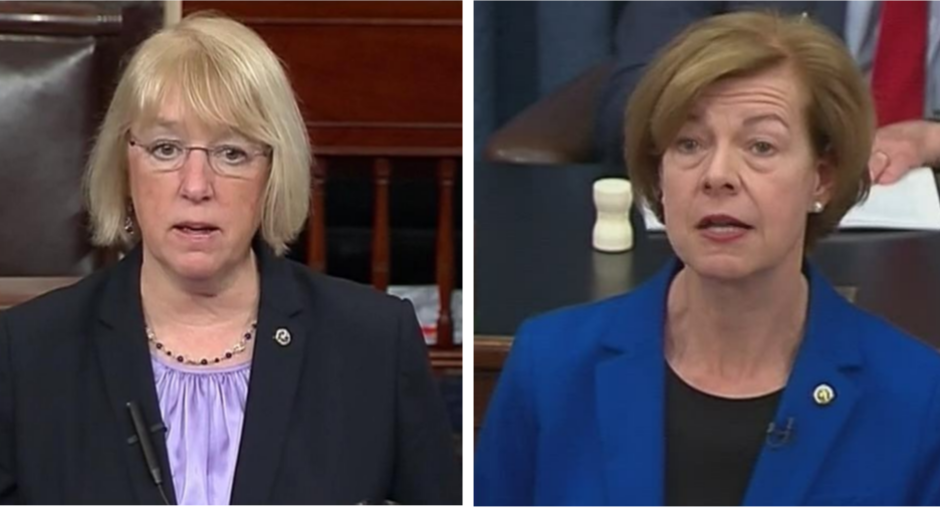The incoming Democratic chairs of two key U.S. Senate committees want the federal agency in charge of the 340B program “to take immediate action to clarify that implementation of a rebate model by [drug] manufacturers would violate a material condition of the 340B Drug Pricing Program.”
In a Jan. 8 letter to outgoing U.S. Health and Human Services (HHS) Secretary Alex Azar, Sens. Patty Murray (D-Wash.) and Tammy Baldwin (D-Wis.) said drug industry technology vendor Kalderos’ service to let manufacturers pay back-end drug rebates instead of up-front 340B drug discounts “violates both the spirit and the letter” of federal law, and “would significantly threaten the ability of 340B covered entities to access 340B savings and could result in denial of 340B pricing altogether.”
That Murray and Baldwin went to bat for 340B covered entities just five days into the new session of Congress speaks volumes about how the Senate will approach 340B under Democratic management.
Murray will soon chair the Senate Health, Education, Labor, and Pensions (HELP) Committee with jurisdiction over 340B. Baldwin will be one of its senior Democrats. Baldwin also will soon chair the Senate Appropriations subcommittee that oversees most federal health care spending including the U.S. Health and Human Services Department (HHS) and the Health Resources and Services Administration (HRSA). Democrats will take control of the Senate after party members Raphael Warnock and Jon Ossoff of Georgia are sworn in later this month. Warnock and Ossoff both won Senate run-off elections last week.
Kalderos’ rebate service is called 340B Pay. Under it, covered entities can decide, for drugs they themselves dispense, whether they want reduced 340B pricing in the form of an up-front discount or a back-end rebate. For drugs dispensed at contract pharmacies, the only way to get 340B pricing will be via a Kalderos rebate. Kalderos told 340B Report last month it expected a number of manufacturers will begin using 340B Pay this calendar quarter.
Kalderos announced 340B Pay this summer at roughly the same time as several drug manufacturers separately announced they were ending or imposing claims-identification conditions on 340B pricing for drugs dispensed by contract pharmacies. In their letter to Azar, Murray and Baldwin said HRSA should include Kalderos’ 340B rebate service in its ongoing review of those other manufacturers’ denials of 340B pricing.
The two senators noted that, on Dec. 30, the HHS general counsel issued an advisory opinion about the other manufacturers “reiterating that ‘manufacturers are required to offer covered outpatient drugs at no more than the 340B ceiling price.’”
“We are concerned that allowing manufacturers to replace the program’s point-of-sale discount requirement with a new rebate model would not only negatively impact 340B providers and the millions of patients they serve, but would also undermine the integrity of the 340B program,” Murray and Baldwin wrote.
“In the midst of a worsening COVID-19 pandemic, the transition to a rebate model would make participation in the 340B Drug Pricing Program more difficult and severely strain the resources of 340B entities and providers who have been on the frontline for months,” the senators said. “Furthermore, many 340B entities, including federally qualified health centers (FQHCs), FQHC Look-Alikes, children’s hospitals, Ryan White HIV/AIDS clinics, and other safety-net hospitals and providers, simply do not have the resources to purchase covered drugs at higher prices and then wait for an undetermined period of time for a rebate that is not guaranteed. Many covered entities have also raised concerns over potential negative implications of data sharing that would accompany rebate requests.”


